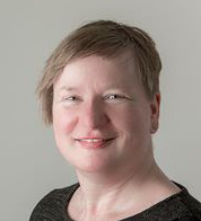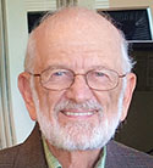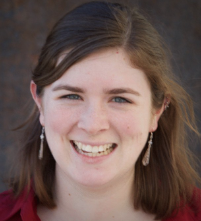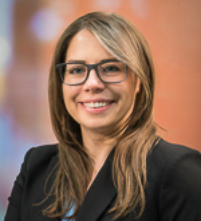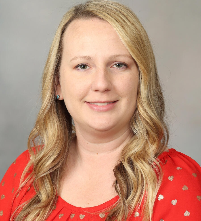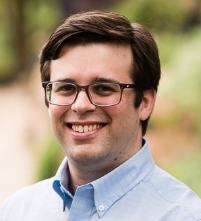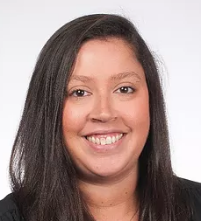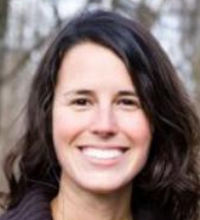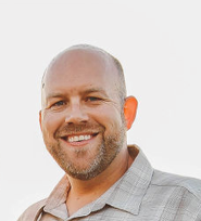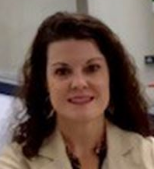MSACL 2024Monterey, CA : March 17-22 |
Agenda
|
Agenda (Preliminary) - View Program
Wednesday, March 20
Time |
Sessions |
|||||||||||||||
|---|---|---|---|---|---|---|---|---|---|---|---|---|---|---|---|---|
1900 |
Registration Desk Open Location: Serra Foyer (Conference Ctr > Ground Floor)
|
|||||||||||||||
825 |
Industry Breakfast Workshop : Thermo Fisher Scientific Location: Steinbeck 1 (Conference Ctr > 2nd Floor)
|
|||||||||||||||
825 |
Industry Breakfast Workshop : Indigo BioAutomation Location: Steinbeck 2 (Conference Ctr > 2nd Floor)
|
|||||||||||||||
825 |
Industry Breakfast Workshop : Waters Corporation Location: Steinbeck 3 (Conference Ctr > 2nd Floor)
|
|||||||||||||||
825 |
Industry Breakfast Workshop : Open Slot : None Scheduled Location: Colton (Conference Ctr > 2nd Floor)
|
|||||||||||||||
900 |
Coffee Break Location: Steinbeck Foyer (Conference Ctr > 2nd Floor)
|
|||||||||||||||
950 |
Plenary : Proteogenomics as a driver for discovery of novel mechanisms and therapeutic targets in lymphoma pathogenesis Location: Steinbeck Ballroom (Conference Ctr > 2nd Floor)
Declaration of Competing Interests Dr. Elenitoba-Johnson declares no conflicts of interest. |
|||||||||||||||
1050 |
Plenary : Steroid Metabolomics for Diagnostic and Prognostic Biomarker Development Location: Steinbeck Ballroom (Conference Ctr > 2nd Floor)
I will discuss steroid metabolomics, the combination of mass spectrometry-based steroid profiling with machine learning-based steroid data analysis. I will provide two clinically relevant examples: (1) the development of a new diagnostic biomarker test for the detection of adrenal cancer, with a timeline covering the last 15 years and including discovery, optimisation and prospective validation - adrenal cancer is rare but regularly discovered upon the investigation of incidentally discovered adrenal nodules, which are detected in 5% of all cross-sectional imaging scans; (2) the exploration of the steroid metabolome in a large comprehensively phenotyped cohort of newly diagnosed and treatment naïve women with polycystic ovary syndrome (PCOS), a condition affecting 10-15% of women worldwide and associated with significantly increased metabolic disease risk. Showing our data from this cohort, I will describe the potential of steroid metabolomics for detailed phenotyping, mechanistic exploration, prognostic prediction and therapeutic stratification in this underserved population. Declaration of Competing Interests Dr. Arlt declares no conflicts of interest. |
|||||||||||||||
1130 |
Plenary : Graham Cooks Lifetime Achievement Award & Mini-Lecture : Mass Spectrometry in Diagnostics and Therapeutics: the Long View Location: Steinbeck Ballroom (Conference Ctr > 2nd Floor)
R. Graham Cooks1,2, Nicolás Morato1,2, Andrew Mesecar1,3
This talk covers an as-yet-unfinished journey. It describes a suite of methods and instrumentation that is the work of many individuals over a long period. Applications to diagnostics, especially intraoperative diagnostics, are ongoing for brain and other cancers. The long view espoused here, describes a series of steps that stretches from half-century old mass spectrometry to new drug candidates, specifically for the case of prostate cancer. 1. MS and MS/MS: because mass spectrometry (MS) is a well suited to characterizing organic compounds, it can be used to characterize complex mixtures, provided sample ionization produces a corresponding mixture of molecular ions. This 1:1 transformation (molecule -> molecular ion) was first achieved by the then-new method of chemical ionization. This allowed two stages of mass analysis, MS/MS, to became an alternative to GC/MS (and later to LC/MS) for mixture analysis.[1] 2. Ambient ionization: the simplest, most direct form of MS, ionizes objects/materials/samples in the open air. Electrospray ionization provided the lead on atmospheric pressure ionization, but ambient ionization [2] goes further and avoids sample manipulation or purification. Desorption electrospray ionization (DESI) effects ionization by localized solvent extraction.[3] 3. MS imaging: any directed ionizing agent (ions in SIMS, neutrals in FAB, photons in LDI, droplets in DESI) is inherently an imaging method.[4] 4. Biomarker discovery: Comparisons of diseased and healthy tissue point to potential biomarkers, e.g. DESI MS/MS analysis of prostate tissue showed preferential localization of cholesterol sulfate in diseased tissue.[5]. 5. Target validation: knockdown studies established an association of cholesterol sulfate transferase with prostate cancer.[6] 6. Late stage functionalization: High throughput DESI instrumentation [7] uses accelerated reactions in microdroplets [8,9] to synthesize large numbers of new drug candidates on the millisecond time scale.[10] 7. Enzyme inhibition: Collection of the functionalized products followed by enzyme kinetic measurements [10] validated inhibition for several particular compounds as potential prostate cancer drugs. 8. Animal, safety and efficacy studies lie in the future. Support from NCATS and Waters, Inc. is gratefully acknowledged.
[1] R. W. Kondrat and R. G. Cooks, Anal. Chem. 50 (1978) 81A Declaration of Competing Interests The Cooks lab receives grant support from Waters. |
|||||||||||||||
1330 |
Exhibits & Lunch Buffet Location: Exhibit Hall - Serra (Conference Ctr > Ground Floor)
|
|||||||||||||||
1330 |
Poster Session 1 Location: Exhibit Hall - Serra (Conference Ctr > Ground Floor)
|
|||||||||||||||
1430 |
Scientific Session 1 Location: Steinbeck 1 (Conference Ctr > 2nd Floor)
|
|||||||||||||||
1430 |
Scientific Session 1 Location: Steinbeck 2 (Conference Ctr > 2nd Floor)
|
|||||||||||||||
1430 |
Scientific Session 1 Location: Steinbeck 3 (Conference Ctr > 2nd Floor)
|
|||||||||||||||
1430 |
Scientific Session 1 Location: Colton (Conference Ctr > 2nd Floor)
|
|||||||||||||||
1430 |
Scientific Session 1 Location: De Anza 1 (Portola Hotel > Ground Floor)
|
|||||||||||||||
1545 |
Poster Session 2 with Poster Tours Location: Exhibit Hall - Serra (Conference Ctr > Ground Floor)
Sign-up and meet at Tour Rally Point in Booth 8 for Poster Tours. |
|||||||||||||||
1645 |
Scientific Session 2 Location: Steinbeck 1 (Conference Ctr > 2nd Floor)
|
|||||||||||||||
1645 |
Scientific Session 2 Location: Steinbeck 2 (Conference Ctr > 2nd Floor)
|
|||||||||||||||
1645 |
Scientific Session 2 Location: Steinbeck 3 (Conference Ctr > 2nd Floor)
|
|||||||||||||||
1645 |
Scientific Session 2 Location: Colton (Conference Ctr > 2nd Floor)
|
|||||||||||||||
1645 |
Scientific Session 2 Location: De Anza 1 (Portola Hotel > Ground Floor)
|
|||||||||||||||
1745 |
Exhibits & Happy Hour Location: Exhibit Hall - Serra (Conference Ctr > Ground Floor)
Take a moment to catch up with vendors and make plans for dinner with colleagues. |
|||||||||||||||
1845 |
Discussion Group : NIH Funding to Support Technology Development, Translation, and Transfer Location: De Anza 1 (Portola Hotel > Ground Floor)
Technical innovation can improve and transform our ability to understand, prevent, diagnose, and treat human disease. NIH drives early-stage innovative technology development and the translation of emerging tools into laboratory and clinical use through several technology-focused grant programs. Dr. Crotty will discuss several of these programs and the diverse technologies that have been supported through them, as well as resources for tech transfer that are offered through NIH. |
|||||||||||||||
1915 |
Discussion Group : Troubleshooting Cases Location: De Anza 2 (Portola Hotel > Ground Floor)
An evening of 6 Troubleshooting Case Presentations. The MSACL Troubleshooting Forum provides a setting for discussion between LC-MSMS users working in clinical diagnostics. The interaction is meant to be collegial, not critical, with the goal of attendees learning from the presenter's experience and the presenter learning from any insight attendees can contribute.
17:45
18:00
18:15
18:30
18:45
19:00 |
|||||||||||||||
1915 |
Career Exploration in Clinical Mass Spectrometry : Networking Event Location: De Anza 3 (Portola Hotel > Ground Floor)
This networking event is geared to early career attendees, but open to all. Get insights through informative, concise presentations on various job profiles within clinical mass spectrometry. Experts and seasoned professionals will guide you through diverse roles, making it easier to envision your own journey in this exciting industry. |
|||||||||||||||
2030 |
Dinner On Own Location: Off-site
|
|||||||||||||||
2330 |
MSACL Hospitality Lounge Location: Club Room (Portola Hotel > Ground Floor)
Drinks provided. |
|||||||||||||||
2130 |
Discussion Group : FDA Regulation of LDTs Location: Bonsai (Portola Hotel > Ground Floor)
Regulation of LDTs or laboratory developed tests by the FDA has long been a topic of interest and discussion. With the advent of new technologies and approaches there remains a gap between what is analytically possible with newer instrumentation versus what is currently allowed for regulatory use. Clearly, the FDA is aware of new analytical methods and capabilities and knows that new guidance’s are needed. This workshop will discuss some of the historical information on these LDT’s and provide a perspective from a non-regulatory FDA research scientist who is also working on incorporating novel technologies to inform regulatory decision making within the FDA. |
|||||||||||||||
| Monterey Conference Center Closes Location: Serra Foyer (Conference Ctr > Ground Floor)
|
||||||||||||||||



